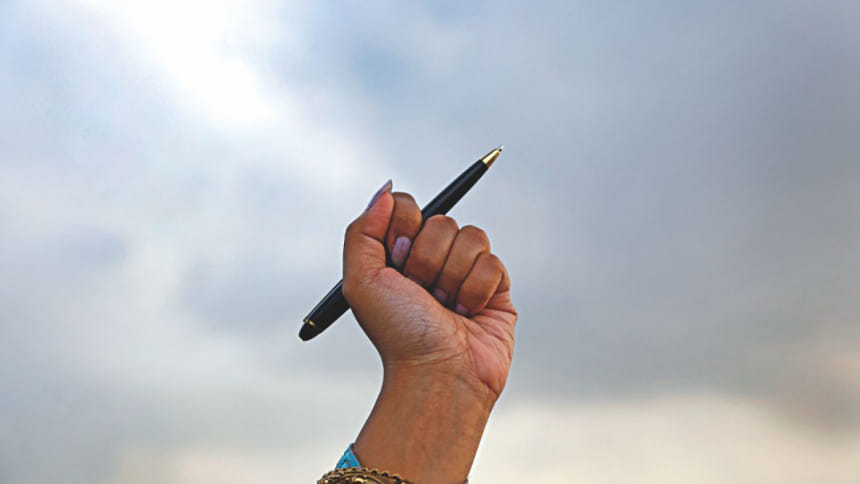It must be stopped

THE horrific cycle of killing of secular bloggers in Bangladesh, which has already claimed at least four lives this year, and the fresh murder of publisher Faisal Arefin Dipon, in Dhaka, the Bangladeshi capital, on October 31, is deeply disconcerting. The Ansar al-Islam, an Islamic extremist group, which identifies as the local affiliate of al-Qaeda, has claimed responsibility for the attack.
Mr. Dipon and another publisher, who was attacked in a separate but similar violent incident on the same day, were targeted because they had published the work of secular blogger Avijit Roy, a Bangladeshi-American, who was killed by the Islamic extremists on February 27. Roy's wife, also a blogger, was critically injured in that attack. According to the BBC, other bloggers who have been killed in 2015 in the same fashion include: Washiqur Rahman (March 30), Ananta Bijoy Das (May 12) and Niloy Neel (August 7).
Starting from the January 7 shooting of the Charlie Hebdo cartoonists in Paris by an al-Qaeda-affiliate, 2015 has been an incredibly chilling year for free speech practitioners and defenders. While attackers in Paris and Dhaka have the same set of ideological belief, they have hit totally different targets i.e. cartoonists and bloggers. This means writers, bloggers, journalists and cartoonists are all equally at high risk of being targeted by religious extremists should they assert dissenting views. The Paris shooting indicated that such fanatical attacks are not solely confined to poor developing countries. However, the occurrence of an attack on free speech in one part of the world does not justify a similar attack in another country.
The Bangladeshi government has disappointed not only its people but also the free thinkers across the world by describing the October 31st tragedy as an "isolated incident". The Daily Star, an English language newspaper, has rightly pushed back in response to the "isolated incident" remark attributed to the country's Home Minister, by describing his stance as "humiliating". With these attacks, the newspaper noted, "our nation's soul is under threat."
Writing in the same newspaper, columnist Meghna Guhathakurta argued:
"Terming these as "isolated incidents" is one way of depoliticising them. Such statements will only embolden the terrorists to carry out more attacks."
In some countries, many heinous crimes go unpunished under the guise of patriotism. In an attempt to divert attention from their failures, governments insist that foreign media and human rights groups want to defame their countries by continuously highlighting the 'negative' things that happen inside their frontiers. That's not an acceptable excuse to spare the Bangladeshi government over its failure to arrest and punish all perpetrators of the past attacks on secular bloggers. Radical Islamist groups are increasingly expanding their attacks with absolute impunity.
People have begun to question: Who will be the next target in this unstopped series of assaults? If the writers and publishers have been killed for producing secular contents, should people who purchase and read these books also prepare to be the next target? That is certainly not what the country's founding fathers had envisioned. Bangladesh, led by progressive intellectuals and liberal politicians, gained independence from Pakistan in 1971 after a violent war. Today, Pakistan is in the grip of Islamist violence where the Taliban regularly assassinate their ideological opponents. Bangladesh cannot allow Islamic extremists to use its land with impunity. Such negligence causes catastrophic consequences.
Stunned, scared and outraged, the world is watching these shocking attacks on secular bloggers and publishers in Bangladesh. Terrorists operating in Bangladesh are providing a recipe and a template to their counterparts elsewhere in the world on how to eliminate dissenting bloggers. Bangladesh, please stop it. If the government in Dhaka does not set a successful precedence in punishing these assassins, they have to know that these attacks will not stop here.
Emboldened by the government's lack of action, the extremists will eventually expand their attacks on liberals, politicians, journalists, writers and anyone who disagrees with their views and approach. After all, these extremist organisations use terror as a first step to force the local population to surrender before them but their ultimate goal is to overthrow the existing system and attain political power so that they enforce Islamic rule in Bangladesh. Afghanistan and Pakistan are two classic examples for the Bangladeshi government to examine and understand the Jihadist mentality and ambitions.
The antidote for Bangladesh, or any other country that is currently in the grip of radical Islam, is not submission to fundamentalists but more secularism. The only way to counter obscurantist views is to further democratise the society and protect free speech. Avijit Roy dreamed of a Bangladesh where no child's brain is manipulated or robbed of critical thinking. He wanted kids to learn science and think rationally. That should have actually been the government's policy and not solely the dream of a lone blogger. It is still not too late. Bangladesh should immediately curb the incoming wave of extremism and protect its existing secular space.
The writer is a US based exiled Baloch journalist and 2014-15 Edward Mason Fellow, Harvard Kennedy School.
© The World Post, Huffington Post

 For all latest news, follow The Daily Star's Google News channel.
For all latest news, follow The Daily Star's Google News channel. 



Comments